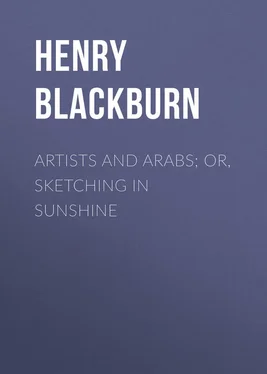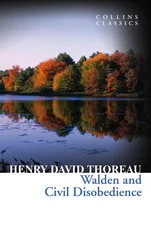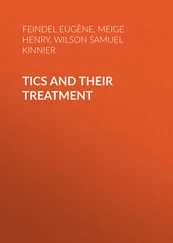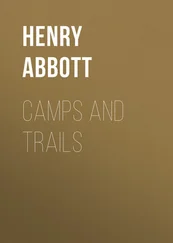Henry Blackburn - Artists and Arabs; Or, Sketching in Sunshine
Здесь есть возможность читать онлайн «Henry Blackburn - Artists and Arabs; Or, Sketching in Sunshine» — ознакомительный отрывок электронной книги совершенно бесплатно, а после прочтения отрывка купить полную версию. В некоторых случаях можно слушать аудио, скачать через торрент в формате fb2 и присутствует краткое содержание. Жанр: foreign_antique, foreign_prose, на английском языке. Описание произведения, (предисловие) а так же отзывы посетителей доступны на портале библиотеки ЛибКат.
- Название:Artists and Arabs; Or, Sketching in Sunshine
- Автор:
- Жанр:
- Год:неизвестен
- ISBN:нет данных
- Рейтинг книги:3 / 5. Голосов: 1
-
Избранное:Добавить в избранное
- Отзывы:
-
Ваша оценка:
- 60
- 1
- 2
- 3
- 4
- 5
Artists and Arabs; Or, Sketching in Sunshine: краткое содержание, описание и аннотация
Предлагаем к чтению аннотацию, описание, краткое содержание или предисловие (зависит от того, что написал сам автор книги «Artists and Arabs; Or, Sketching in Sunshine»). Если вы не нашли необходимую информацию о книге — напишите в комментариях, мы постараемся отыскать её.
Artists and Arabs; Or, Sketching in Sunshine — читать онлайн ознакомительный отрывок
Ниже представлен текст книги, разбитый по страницам. Система сохранения места последней прочитанной страницы, позволяет с удобством читать онлайн бесплатно книгу «Artists and Arabs; Or, Sketching in Sunshine», без необходимости каждый раз заново искать на чём Вы остановились. Поставьте закладку, и сможете в любой момент перейти на страницу, на которой закончили чтение.
Интервал:
Закладка:
Other sights and sounds we might mention, some not quite so pleasant but peculiarly Eastern; and we should not forget to note the peculiar scent of herbs and stuffs, which, mingled with the aroma of coffee and tobacco, was sometimes almost overpowering in the little Covered streets; and one odour that went up regularly on Sunday mornings in the Moorish quarter that was not incense, and which it took us a long time to discover the origin of – an Arab branding his donkeys with his monogram!
Everything we purchase is odd and quaint, irregular or curious in some way. Every piece of embroidery, every remnant of old carpet, differs from another in pattern as the leaves on the trees. There is no repetition, and herein lies its charm and true value to us. Every fabric differs either in pattern or combination of colours – it is something, as we said, unique, something to treasure, something that will not remind us of the mill. 8 8 The little pattern at the head of this chapter was traced from a piece of embroidered silk, worked by the Moors.
If we explore still further we shall come to the Arab quarter, where we also find characteristic things. Here we may purchase for about thirty francs a Kabyle match-lock rifle, or an old sabre with beautifully ornamented hilt; we may, if we please, ransack piles of primitive and rusty implements of all kinds, and pick up curious women's ornaments, beads, coral, and anklets of filagree work; and, if we are fortunate, meet with a complete set or suit of harness and trappings, once the property of some insolvent Arab chief, and of a pattern made familiar to us in the illustrated history of the Cid.
In the midst of the Moorish quarter, up a little narrow street (reached in five or six minutes from the centre of the town) passing under an archway and between white walls that nearly meet overhead, we come to a low dark door, with a heavy handle and latch which opens and shuts with a crashing sound; and if we enter the courtyard and ascend a narrow staircase in one corner, we come suddenly upon the interior view of the first or principal floor, of our Moorish home.
The house, as may be seen from the illustration, has two stories, and there is also an upper terrace from which we overlook the town. The arrangement of the rooms round the courtyard, all opening inwards, is excellent; they are cool in summer, and warm even on the coldest nights, and although we are in a noisy and thickly populated part of the town, we are ignorant of what goes on outside, the massive walls keeping out nearly all sound. The floors and walls are tiled, so that they can be cleansed and cooled by water being thrown over them; the carpets and cushions spread about invite one to the most luxurious repose, tables and chairs are unknown, there is nothing to offend the eye in shape or form, nothing to offend the ear – not even a door to slam.
Above, there is an open terrace, where we sit in the mornings and evenings, and can realise the system of life on the housetops of the East. Here we can cultivate the vine, grow roses and other flowers, build for ourselves extempore arbours, and live literally in the open air.
From this terrace we overlook the flat roofs of the houses of the Moorish part of the city, and if we peep over, down into the streets immediately below us, a curious hum of sounds comes up. Our neighbours are certainly industrious; they embroider, they make slippers, they hammer at metal work, they break earthenware and mend it, and appear to quarrel all day long, within a few feet of us; but as we sit in the room from which our sketch is taken, the sounds become mingled and subdued into a pleasant tinkle which is almost musical, and which we can, if we please, shut out entirely by dropping a curtain across the doorway.
Our attendants are Moorish, and consist of one old woman, whom we see by accident (closely veiled) about once a month, and a bare-legged, bare-footed Arab boy who waits upon us. There are pigeons on the roof, a French poodle that frequents the lower regions, and a guardian of our doorstep who haunts it day and night, whose portrait is given at Chapter V.
Here we work with the greatest freedom and comfort, without interruption or any drawbacks that we can think of. The climate is so equal, warm, and pleasant – even in December and January – that by preference we generally sit on the upper terrace, where we have the perfection of light, and are at the same time sufficiently protected from sun and wind.
At night we sleep almost in the open air, and need scarcely drop the curtains at the arched doorways of our rooms; there are no mosquitoes to trouble us, and there is certainly no fear of intrusion. There is also perfect stillness, for our neighbours are at rest soon after sundown.
Such is a general sketch of our dwelling in Algiers; let us for a moment, by way of contrast, return in imagination to London, and picture to ourselves our friends as they are working at home.
Конец ознакомительного фрагмента.
Текст предоставлен ООО «ЛитРес».
Прочитайте эту книгу целиком, купив полную легальную версию на ЛитРес.
Безопасно оплатить книгу можно банковской картой Visa, MasterCard, Maestro, со счета мобильного телефона, с платежного терминала, в салоне МТС или Связной, через PayPal, WebMoney, Яндекс.Деньги, QIWI Кошелек, бонусными картами или другим удобным Вам способом.
1
Necessary enough, to be protected from the cold blasts that sweep down the valleys, as many invalids know to their cost, who have taken houses or lodgings hastily at Nice.
2
It is generally admitted, we believe, that a vegetable diet will not produce heroes,' and there is certainly a prejudice in England about the value of beef for navvies and others who put muscular power into their work. It is an interesting fact to note, and one which we think speaks volumes for the climate of Algeria, that this gentleman lives almost entirely on fruit, rice, and Indian corn.
3
This beautiful architectural feature of the town has not escaped the civilizing hand of the Frank; the last time we visited Algiers we found the oval window in the tower gone, and in its place an illuminated French clock!
4
It may be interesting to artists to learn that in this present year 1868, most of the quaint old Moorish streets and buildings are intact – neither disturbed by earthquakes nor 'improved' out of sight.
5
Since writing the above, we observe that these Arabs (or a band of mountebanks in their name), have been permitted to perform their horrible orgies in Paris and London, and that young ladies go in evening dress to the 'stalls' to witness them.
6
How often have we seen in the Tuileries gardens, the bronzed heroes of Algerian wars, and perhaps have pitied them for their worn appearance; but we shall begin to think that something more than the African sun and long marches have given them a prematurely aged appearance, and that absinthe and late hours in a temperature of 90° Fahrenheit may have something to do with it.
7
How different from what we read of in Æothen . The cry is not, 'Get out of the way, O old man! O virgin! – the Englishman, he comes, he comes!' If we were to push an old man out of the way, or, ever so little, to forget our duty to a fair pedestrian, we should be brought up before the Cadi, and fined and scorned, by a jury of unbelievers!
Читать дальшеИнтервал:
Закладка:
Похожие книги на «Artists and Arabs; Or, Sketching in Sunshine»
Представляем Вашему вниманию похожие книги на «Artists and Arabs; Or, Sketching in Sunshine» списком для выбора. Мы отобрали схожую по названию и смыслу литературу в надежде предоставить читателям больше вариантов отыскать новые, интересные, ещё непрочитанные произведения.
Обсуждение, отзывы о книге «Artists and Arabs; Or, Sketching in Sunshine» и просто собственные мнения читателей. Оставьте ваши комментарии, напишите, что Вы думаете о произведении, его смысле или главных героях. Укажите что конкретно понравилось, а что нет, и почему Вы так считаете.












